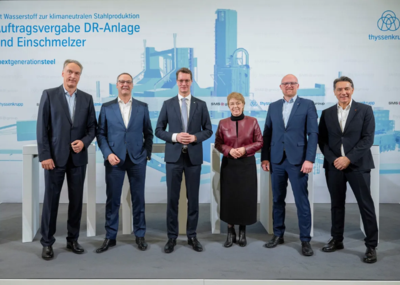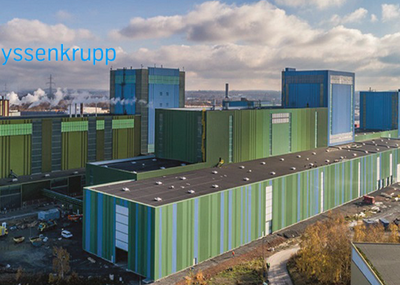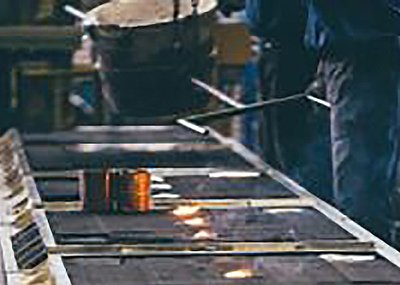The electricity consumption of the Lech steelworks is equivalent to that of a city with around 300,000 inhabitants.
The Lech steelworks in Bavaria produces one million tonnes of the material annually. Now, however, the machines are at a standstill. In view of the sharp rise in energy prices, continuous operation no longer makes sense, the company says.
The sharp rise in electricity costs is a growing concern for the energy-intensive steel industry. As one of the first plants in Germany, Lech-Stahlwerke in Meitingen, Bavaria, has now stopped production. "We are shutting down production for days at a time," said a company spokesperson. "It does not make economic sense to produce."
Prices already at record levels
What would an energy boycott mean for Germany?
According to the company, the electric steel plant produces over one million tonnes of the material annually. Electricity consumption is equivalent to that of a city with about 300,000 inhabitants. Including subsidiaries, more than 1000 people are employed at the site. It is the only steelworks in Bavaria.
"Electricity and gas prices had already risen dramatically in the months before the Russian attack on Ukraine, and they had almost tripled compared to the beginning of 2021," the Wirtschaftsvereinigung Stahl explained. Reasons had been, for example, the effects of the Corona crisis, weather conditions, drastically increased CO2 prices, but also already geopolitical tensions. "We see with great concern that the cost increase is accelerating even further due to the outbreak of war." He added that the steel industry has been massively affected by the impact on energy prices. "To a particular extent, this applies to electricity-intensive processes such as electric steel production, but also the use of natural gas in further processing."
High prices weigh on steel industry across Europe
Electric steel mills, where scrap is melted, consume significantly more electricity than traditional blast furnaces, where iron ore and coking coal are used. Electricity can be produced from the gases produced here, which covers a large part of the demand.
Thyssenkrupp Steel Europe even supplies several thousand neighbouring households at its Duisburg site. But Thyssenkrupp Steel is also feeling the effects of the high prices. "In the last six months alone, our expenses for gas and electricity have risen by a three-digit million amount," the head of Thyssenkrupp Steel Europe, Bernhard Osburg, had said in the middle of last month. Thyssenkrupp has the advantage of producing two-thirds of the electricity it needs itself through processes at the Duisburg steel site. The remaining third alone, however, would lead to these additional costs.
World market leader ArcelorMittal reacted similarly: the electric steel plants in Germany, Luxembourg, Poland, Romania and Spain were running in stop-and-go mode. The price explosion for electricity is causing considerable additional costs.
Source: www.n-tv.de









